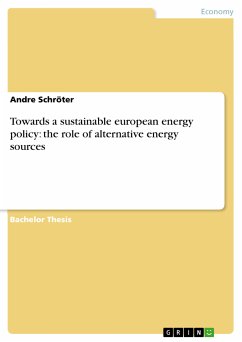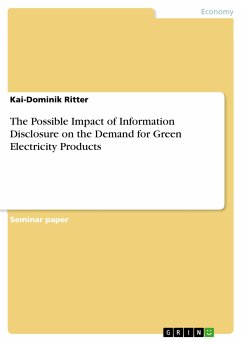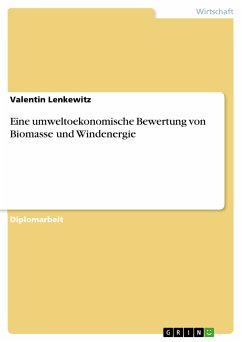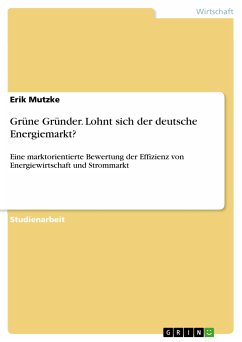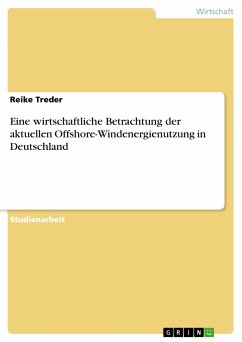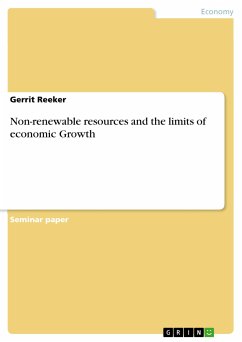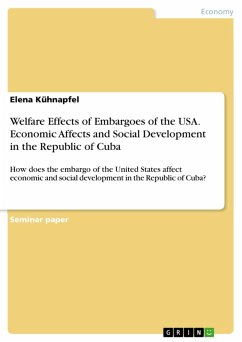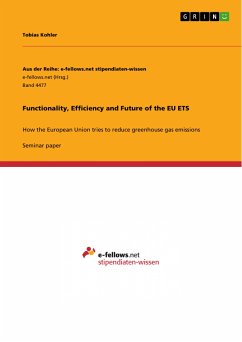Bachelor Thesis from the year 2007 in the subject Economy - Environment economics, grade: 2,0, Martin Luther University (Wirtschaftswissenschaften), language: English, abstract: 1.0 Introduction "Nach langem Streit beschloss die EU außerdem, den Anteil der erneuerbaren Energien am Verbrauch im selben Zeitraum von derzeit gut 6 auf 20 Prozent zu steigern. Allerdings dürfte es in diesem Punkt in der Zukunft noch zu harten Verhandlungen kommen." [24]. Since it has been discussed controversial over years, this paper will examine the role and potential of renewable energies (REs) for a future energy mix or even a substitution of the conventional primary energy source (PES) in the EU with respect to four primary aspects. These are imbedded in the question, which PESs respectively which energy mix is the best solution for a long-term energy policy, regarding the highest possible supply guarantee and energetic independence the EU with a minimum of economic costs and negative environmental impacts. Apparently, these four aspects are often merging. For instance, the damage caused by negative environmental impacts partially leads to economical costs for removing them. Further, the dependence on imports of PESs may lead to an interrupted service, if an exporting country stops the consignment as a pressurising medium in negotiations. The paper is based on the following three assumptions. First of all, the energy industry contains the large area of the generation of current and heat, as well as the fuel sector. The possible present and future drive concepts of vehicles contain current, hydrogen, biomass, crude oil or natural gas as operating power. Since these energy sources have been included within the consideration concerning current and heat generation, the fuel sector will not be observed further. Second of all, the results regarding the current discussion about the greenhouse gas emissions and global warming in the media and science are controversial. Because of that, the greenhouse gas emissions of the PESs will not be weighted higher within the category of negative environmental impacts in the following analysis. Third of all, concerning the consideration of the EU, the paper will not relate to several countries of it but will reference Germany. Since it is the country in the EU with the highest energy consumption, Germany seems to be a good benchmark [51].
Dieser Download kann aus rechtlichen Gründen nur mit Rechnungsadresse in A, B, BG, CY, CZ, D, DK, EW, E, FIN, F, GR, HR, H, IRL, I, LT, L, LR, M, NL, PL, P, R, S, SLO, SK ausgeliefert werden.

